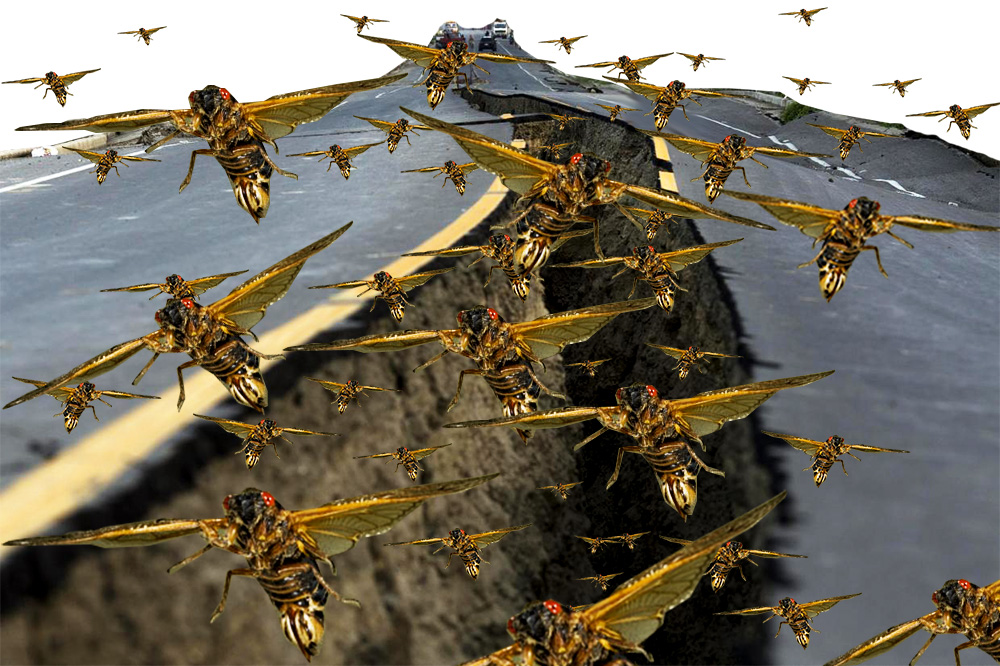RAVIOLI
Staff Lampoonist
After learning of a devastating earthquake moving through Ecuador, investigations were carried out in order to determine its epicenter. Geologists were perplexed, however, when they examined the ground beneath them and were blinded by a flock of cicadas emerging from the soil like a resounding inferno.
A team of scientists gathered all the information it could and came to the surprising conclusion that there was never an earthquake to begin with. The extensive damage was actually caused by the rumblings of billions of cicadas, an event that shockingly managed to replicate a 7.8 magnitude earthquake.
Collectively, the sound produced by the alien-like insects can reach well beyond the pain threshold of the human ear. Seismologist Rick Rumbles was seen running away from the scene in search of the safe haven that was his sound-proof car.
“It’s an environment I’ve never worked in before,” said Rumbles. “They were emerging from every square inch and that damned sound made it impossible for me to hear my own thoughts.”
Rumbles ended his interview with the Lampoon early saying that he believed he had a cicada wing stuck up his nose.
Further discussion with insect ecologists clarified the mystery behind this astonishing event. “Seventeen-year cicadas,” as they are called, were in fact expected to emerge from their incubation sites this year.
Insect ecologist Anne Syn Pantz explained, “The short explanation is that 17 is a prime number, so by emerging after this long of an incubation period, the newly developed cicadas’ arrival time can never sync up with any of their natural predators.”
With the detective work out of the way, the focus was shifted back to the well-being of the citizens in the area. As of right now, it is clear that the effects of the cicada resurrection were catastrophic. President of Ecuador Rafael Correa was at work, stressfully formulating how to salvage the area and provide aide to the citizens.
Correa acknowledged the indisputable fact that the countless homes destroyed and injuries endured would be a long-term financial burden on this primarily poor country. Initially, the only feasible solution was to increase taxes on the Ecuadorian people. Correa was extremely hesitant to do this given the overall financial status of the country, but he felt it was his only option.
As luck would have it, however, a young aspiring entrepreneur by the name of Ernesto Dolorosa showed up at his doorstep with an ingenious idea for bringing money in.
From an old, musty looking shopping bag, Dolorosa presented an impressive supply of dead cicadas perfectly preserved in something resembling amber. Correa, now deeply puzzled, raised an eyebrow at the eager individual and asked for clarification.
“I got the idea right when that breathtaking earthquake started the other day!” said Dolorosa. “All of a sudden, this storm of demented flies overtook my home, followed by the quake knocking over a jar of honey I had on the table. The suckers couldn’t get to it fast enough and were trapped in an instant! If we clean these up and sell them, Ecuador will become the real Utopia!”
Correa, now with the cooperation of Ecuadorian jewelers, has started a booming business of pristine cicada jewelry and plans on exporting all of the supply for profit. It is expected that Ecuador will have the damages to their homeland repaired by next year … at least until the 13-year brood emerges.

